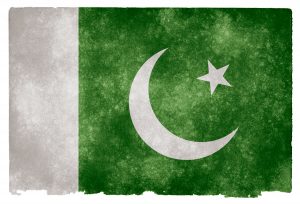By Umair Jamal

Last week, Pakistan returned $1 billion to Saudi Arabia as a second installment of a $3 billion loan that Riyadh offered the country in 2018 to help stave off a current account crisis. Reportedly, Islamabad has to repay the remaining $1 billion to Riyadh next month.
Considering the long history of cordial ties between Pakistan and Saudi Arabia, the return of such a major loan in the midst of a pandemic and major economic crisis in Pakistan only points to a serious crisis in the relationship.
A newly emerging alliance in the Muslim world explains why Saudi Arabia may have asked for the repayment of loan from Pakistan. And a silent compliance from Pakistan in this regard shows that Islamabad may not be ready to beg for more time by offering concessions that could harm it’s new foreign policy.
For some time now, Islamabad has been making efforts to align itself with the Turkey- Malaysia-Iran alliance in the Muslim world which Saudi Arabia sees as a challenge to its own claim of being the leader of the Islamic world. One of the key reasons Pakistan may have finally decided to take that difficult route is due to Riyadh’s longstanding position to ignore Islamabad’s core national security interests at forums that represent Saudi Arabia “dominated” Muslim world.
The deterioration of bilateral ties became public when under Saudi pressure, Pakistan pulled out of the Kuala Lumpur Summit in Malaysia last year. According to Turkish President Recep Tayyip Erdogan, Saudi Arabia threatened Pakistan with economic sanctions if Prime Minister Imran Khan attended the meet.
The summit was organized by Malaysia’s then Prime Minister Mahathir Mohamad to discuss issues of the Islamic world. Following the summit, the Saudi Arabia-dominated Organization of Islamic Cooperation (OIC) criticized the summit by saying that such gatherings would weaken the Muslim world.
While Pakistan may not have attended the summit, Islamabad has stepped up efforts to deepen ties with the Turkey-Iran-Malaysia bloc. Much of the that can be discerned from changing soft-power dynamics.
Khan recently recommended that a Turkish drama “Yunus Emre: Askin Yolculigu” be aired on Pakistan state television in order to educate public about Sufism. Another drama, “Dirilis: Ertugrul” (Resurrection) has been running in Pakistan for more than a year now and has enjoyed record viewership in the country. Last week, Pakistan voiced its opposition to the United States’ sanctions on Turkey for its decision to purchase the S-400 air defense missile system from Russia. In an interesting statement, Pakistan’s foreign office said that “The people and the government of Pakistan reiterate their strong support for the government and the people of Turkey in their quest for national security, peace and prosperity, and as always, will continue to stand by them towards the achievement of these shared goals.” In 2018, Turkey also signed a deal with Pakistan to sell a batch of 30 T-129 attack helicopters to Pakistan. The Turkish government has already announced that the U.S. sanctions will not affect the helicopter deal with Pakistan, indicating growing cordiality between the two countries.
Pakistan and Iran’s ties have also been warming up over the last few years. A few days ago, Pakistan and Iran opened a new border crossing. The Rimdan-Gabd border gateway is likely to boost business and trade between the two neighboring countries. Iran’s ambassador to Pakistan, Sayed Mohammad Ali Hosseini, termed the border opening a “historic day” for both countries. It is important to note that the border opening comes in the midst of Pakistan and Saudi Arabia’s growing tensions. Further, Pakistan and Iran have also announced their decision to raise a joint rapid reaction force to fight armed groups along their border. Moreover, with the news of Iran joining China’s Belt and Road initiative (BRI) under an agreement worth $400 billion, ties between Pakistan and Iran will only extend further. In the coming months and years, Pakistan and Iran’s stakes to ensure stability on their border regions will grow as China’s BRI extends to Pakistan and beyond via the China Pakistan Economic Corridor (CPEC).
For now, Malaysia may be a smaller player in this entire geopolitical realignment, but the country is making its presence felt in Pakistan. Malaysia’s national carmaker Proton has built an assembly plant in Pakistan and recently launched a sports utility vehicle in the country. The company aims to sell 400,000 vehicles in Pakistan by 2027 and will create 2000 direct local jobs in its first three years of operations.
All of this doesn’t bode well for Saudi Arabia’s influence and interests in Pakistan. Moreover, the policy of strong-arming Pakistan is not going to work as the country finds more avenues to fulfill its financial and diplomatic needs.
Riyadh and its allies in the Gulf region may have more tricks up their sleeves, such as cutting Pakistan’s remittance flows. However, it remains an open debate whether Saudi Arabia can afford to push away a country like Pakistan and how far Riyadh can go in bullying Islamabad. Perhaps, it is the first time that Islamabad is actually refusing to submit to the Saudis and pushing ahead with its vision to make an alternative alliance in the Muslim world.
No comments:
Post a Comment